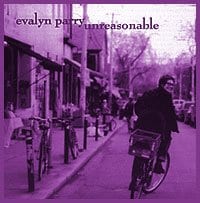Did you ever see The Thief Of Baghdad, the 1940 flick starring Sabu? Well, I did, centuries ago on TV, and when it comes to images of Iraq that’s about the best I can do – a 1940s British fantasy, that was shot (I’m guessing) on a sound stage.
And therein lies a problem, both for us and for Iraq. For if there’s one thing you can say about the current war, it’s that it depends on a massive “conspiracy of silence.”
Or maybe I mean “curtain of invisibility.” No way George Jr would be bombing the hell out of a city of five million people if even half the North American population knew a single Iraqi. The novelist Christopher Isherwood was a pacifist during World War II in part because a significant ex was German. Knowing a single key person on the other side meant he couldn’t go to war. But how many of us can say the same about Iraq?
Trot into any Toronto gay bar these days and you can meet Turks, Saudis, Colombians, Brazilians, Mexicans and Chileans. (And those are just the groups I recognize.) But so far I haven’t met a single Iraqi. In fact the only gay Iraqi I have “met” was on TV – and George Hayim, the irascible hero of the 1997 documentary Nana, George And Me, was hardly representative. Brazen, outrageous and intensely sexual, the 70-something author of Thou Shalt Not Uncover Thy Mother’s Nakedness lived the charmed life of a rich expatriate, with trippy homes in both London and Sydney.
Most of the folks in Iraq experience a different reality and we seldom get the chance to see it. Ever since the first gulf war, the image portrayed of Iraq has been a cryptic collage of poorly detailed images, Disney-esque shots of explosions and night-vision shots straight out of Silence Of The Lambs.
News of everyday life in Iraq is harder to come by, which is probably why an irreverent blog or web diary called Where Is Raed? (dear_raed.blogspot.com) has become so important to so many people. According to The New Yorker, it “appears to be the only blog written by an Iraqi citizen.”
By the time the war began, says The Guardian, “the website had become the most linked-to web diary on the Internet.” The New York Times called it “perhaps the most widely read war-related weblog.” And it’s written by a gay man.
Operating under the pseudonym Salam Pax (the Arabic and Latin words for peace), the 29-year-old architect posted almost daily descriptions of life in Baghdad during the months leading up to the war. In between meditations on duct-taping windows and the problems of storing emergency reserves of gasoline in your home, Salam casually alludes to his personal life.
In an aside to a friend, he asks when the guy is going to give him some space, “so that I can go to Amman and date that bald shorty who works at the Books@Cafe without you mocking my lusting after him.”
Salam is quite upfront about his gayness. (An American friend calls him “Salam, Queen Of The Desert.”) But there are no nude boys or rainbow flags on his site.
For most people, his most endearing characteristics will be his irreverent sense of humour and brash common sense. Resolutely non-ideological, he seems to loath Saddam and the Americans in equal measure. Saddam and his crew are “freaks,” but the Americans are making a bad situation worse. Sanctions merely drove the “brightest and most creative minds” out of the country, while the first gulf war accelerated the spread of religious fundamentalism.
“I think it was Cheney or Albright who said they will bomb Iraq back to the stone age. Well, you did. Iraqis have never accepted religious extremism in their lives.” But now it’s spreading, he says.
American justifications for war are a joke. “How could ‘support democracy in Iraq’ become to mean ‘bomb the hell out of Iraq?’… Nobody minded an un-democratic Iraq for a very long time. Now people have decided to bomb us to democracy? Well, thank you! How thoughtful.”
As for a pompous report on post-Saddam reconstruction issued by the prestigious New York-based Council On Foreign Relations: “Some of it sounds like the list my mother would have given my babysitter.”
Some people doubt Salam’s authenticity and certainly for a Western reader trying to get a grip on an alien culture, he seems a little too good to be true. Raised partly in Europe (one source says Austria), he likes watching MTV Germany and shopping for English books at the Virgin Megastore in Beirut. He seldom reads Arabic books, and worries that his site is not more obviously Arabic, but he continues to write in English sprinkled with US slang (“Man, this is way too funny”).
Real or not, Salam provides a portal into another world and I hope he’s still around, ready to post another day. He hasn’t been heard from since Mar 24, leaving thousands of people around the world hoping that it was just a matter of bad phone lines, and not something much worse.

 Why you can trust Xtra
Why you can trust Xtra


